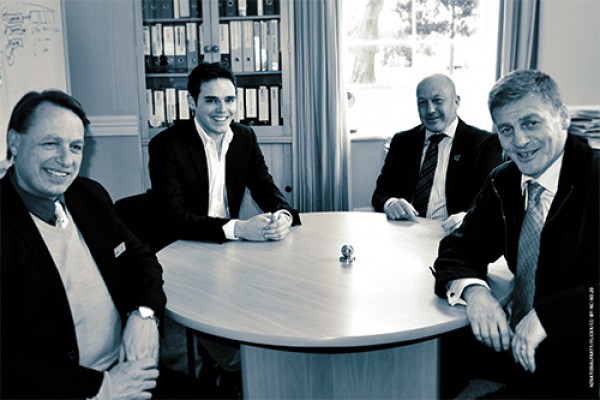At 24, Todd Barclay was New Zealand’s youngest MP, anointed as the replacement for Bill English in Clutha-Southland, the safest National electorate in the country. He won by a huge majority. By 27, he was a disgraced politician who had not only ended his own career but also irreparably damaged the credibility of his Prime Minister. The story of his rise and fall is the shortest in a generation.
After a falling out between himself and his employees, Barclay made illegal secret recordings of office conversations, many of which were of a personal and confidential nature. One staffer received a large payout for the privacy breach, which was paid with taxpayer money from the Prime Minister’s budget. Barclay initially denied ever making the recordings. That turned out to be a lie. He also denied telling Bill English about them. Another lie. Two days after Newsroom broke the story, he announced that he would not stand for re-election.
I interviewed Todd Barclay for a piece in Critic about a year and a half ago. At the time, his political future looked on the up-and-up. He had been in parliament for just over a year, was making strides in the Law and Order committee, and had recently been voted ‘New Zealand’s Hottest MP’. A fresh faced National MP who was guaranteed re-election for years to come. Talk of him becoming a future leader in a decade or two was not unreasonable.
I met him on the museum lawn, surrounded by a gaggle of Young Nats. We walked off to the Link to find a quiet spot to talk. I normally record interviews on my phone but I had lost it during an O-Week bender and had to borrow a dictaphone from the office. Ironically, this almost obsolete piece of technology would be the very thing that ended his career.
Perhaps my expectations were too high. The day prior I had the chance to talk to Green MP Julie Anne Genter, probably the best interviewee I’ve ever had. She spoke brazenly about her personal experiences in parliament - who her best friends in the House were (Jacinda Ardern and Nikki Kaye, but not at the same time), and about the very real presence of sexism among the political elite - Speaker of the House David Carter was “perhaps unintentionally biased, but not out of malice”. Foreign Affairs Minister Murray McCully was “constantly making blatantly sexist jokes”.
By comparison, Todd Barclay was a mindless drone devoid of all but the rehearsed party PR lines. I would have got more out of interviewing a plank of untreated wood. Any discussion of him as a future leader was apparently based solely on his age and safe electorate seat, because apart from that he did not have a lot going for him.
Todd Barclay answered questions as if his boss was looking over his shoulder the whole time, which, in fairness, they probably were. National’s PR team is notoriously controlling. But he also answered with an air of insincerity and dispassion.
When profiling politicians I almost always ask them about the formative moment or issue that first inspired them to get involved in politics. I normally get answers like the 1990s student fee protests, the Iraq war, or the challenges of starting a business. Issues that stirred some drive and desire to change things for the better. I saw none of that in Todd Barclay. His answer was simply “My parents knew Bill English from Dipton so I emailed him and told him I was interested in politics generally, and he invited me to spend the day with him and I ended up working for him”. When I asked what sparked his decision to run for parliament in the first place, he said, “I always wanted to”.
Todd Barclay represented ambition for the sake of ambition. He was like a Young Nat’s wet dream. He never made a genuine argument for why he was right wing or what inspired his ideology. I suspect the answer was simply that he’s from Dipton and that’s just the way people from Dipton vote.
His lack of principles in the face of self-advancement was exemplified by his work as a tobacco lobbyist. This was an issue which had dogged him somewhat in the campaign, and I was not the first to question him on it. He cut me off before I could even finish. “No, it doesn’t reflect my ideology, I just saw it as a job. That’s it.” He refused to say any more on the subject.
That he was willing to work promoting a dangerous substance, that he was apparently personally opposed to, simply to boost his CV speak volumes. He practised the politics of career advancement, not the politics of conscience.
If he believes in a free-market approach to the sale of tobacco, he should have been willing to say so. If he believes, as his party does, in a smoke free New Zealand by 2025, then why was he working for them in the first place?
The next generation of National MPs need two things: authenticity and principles. If you look at people like John Key and Paula Bennet, love them or hate them, they had real world experiences which shaped them and could articulate honestly why they believe what they believe. Todd Barclay never struck me as capable of that.
Todd Barclay fucked up when he secretly recorded his staff members. Bill English fucked up when he wasn’t truthful about how much he knew about the investigation. It cost Todd his career, and he’ll be kicking himself for that. But for the party, Todd Barclay is no great loss. National doesn’t need more MPs like him.







